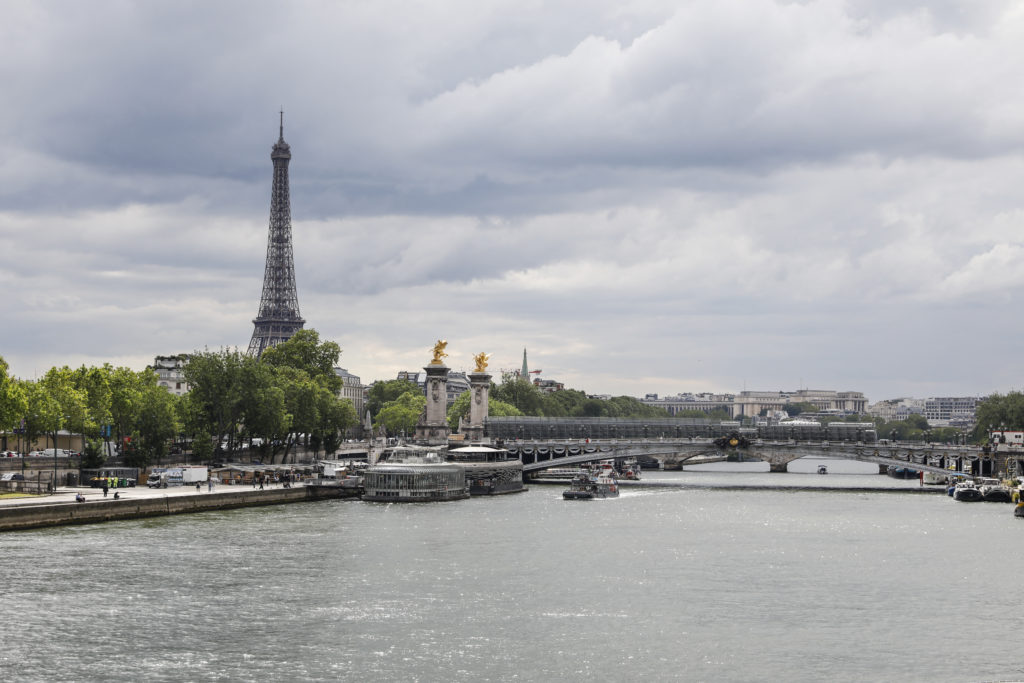Last week, concentrations of E. coli in the Seine exceeded dangerous levels for the third week in a row, but on Thursday local authorities released new results showing an improvement. Photo by Laure Boyer/Hans Lukas/AFP via Getty Images
PARIS (AP) — A 76-year-old American swimmer braved murky waters in central Paris on Thursday to swim in the Seine, celebrating Independence Day and highlighting the French government's efforts to clean up the river in time for the Olympics.
The timing was good: Hours later, local officials released data showing that the river's water quality had improved over the past week, raising hopes that it could host the Olympic swimming events.
Joelle Stratte-McClure, who last swam in the Seine in 1976 for a magazine cover shoot, said she was impressed with the progress being made in cleaning up the river but remained concerned about its safety.
“I might regret swimming,” McClure said before entering the water, “but if I come out alive, it will be proof that the French did a good job cleaning up the river.”
Paris Mayor Anne Hidalgo had originally planned to swim in the Seine last month to demonstrate its cleanliness, but this sparked an online campaign with many critics threatening to urinate in the river on the day she was to swim.
But with France plunged into political tension after President Emmanuel Macron announced early parliamentary elections, dampening the pre-Olympic excitement for many, she postponed her swim. Heavy rains in recent months have made the river flow faster than usual for this time of year, and Hidalgo said she plans to swim in mid-July instead.
“I think the president planned the new election to avoid swimming in the Seine,” McClure joked.
After a short swim, he said the water in the river was “great” and that he hoped others would follow his lead and take advantage of the now-clean river.
During the Olympic Games, which run from July 26 to August 11, and the Paralympic Games, which run from August 28 to September 8, a marathon swim and triathlon will take place on the river near the Alexandre III Bridge.
Last week marked the third consecutive week that E. coli levels in the river exceeded safe limits, but on Thursday local officials released new results showing improvement.
Tests by watchdog group Eau de Paris found that contamination levels were below the World Triathlon Federation's safety limit of 900 colony-forming units per 100 millilitres for competitions on all but one day between June 26 and July 2.
French officials remain optimistic and insist there is no alternative for the Olympic open water swimming events.
left:
Last week, concentrations of E. coli in the Seine exceeded dangerous levels for the third week in a row, but on Thursday local authorities released new results showing an improvement. Photo by Laure Boyer/Hans Lukas/AFP via Getty Images

